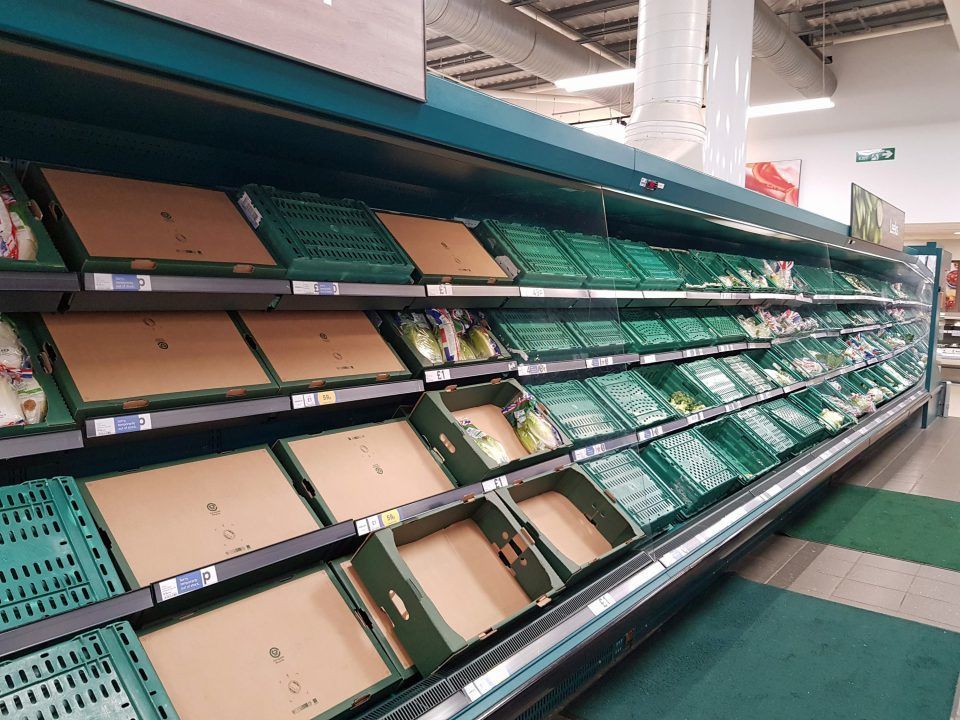Food shortages could peak at Christmas with major problems facing the supply chain, industry groups have warned.
A lack of staff in the food and drink sectors is a key issue jeopardising the supply of goods and is being exacerbated by Brexit, Holyrood’s Rural Affairs Committee has been told.
In an evidence session about the state of the food and drink supply chain, witnesses from representative groups detailed a “fragile” situation, with labour shortages causing delays and disruption in sectors ranging from butcher and veterinarian services to haulage and food storage industries.
It follows a letter, signed by the heads of eight representative groups, to the UK Home Office pleading for a “Covid recovery visa” to allow people from the EU to work in the affected sectors.
He gave the example of East of Scotland Growers, which had to destroy 2.5 million broccoli and 1.5 million cauliflower due to staff shortages in the supply chain and backed-up storage facilities, losing the firm approximately £1m.
Warning there is a “very real risk that the situation could get worse”, Mr Withers added: “This is during a lull in the supply chain calendar and, as things peak towards Christmas, a shortage on the farms, a shortage in the seafood and red meat processing industries, a shortage of drivers, a shortage in retail, in hospitality, in chefs and front of house, all combines to give some very real problems.
“The solutions are elusive but the single most important step that could be taken is if the Home Office provided emergency Covid recovery visas, at least for the next 12 months, so we could extend recruitment and stretch out into the EU.”
Mr Withers also said there has been dismay among UK firms because European businesses have had a “completely free ride bringing products into the country”, while exporters to the EU face “a huge amount of bureaucracy and paperwork”.
But even with document checks starting in the UK from October and the first physical checks on products beginning in the new year, he said there are “alarm bells” because of existing staff shortages and problems at the borders.
Mr Withers told MSPs: “We already have real challenges in the delivery supply chain as a result of labour shortages before we even start some of these checks coming in.
“If even half the pain is fell on the import checks as exporters felt on products moving in the opposite direction, there will be real challenges.
“I think it will be interesting to see if those checks on imports are delayed yet again, because I would have questions in my own mind as to whether our border posts are fit and ready to deal with the level of bureaucracy that will be required on products coming into the country.
“But at the moment, we haven’t felt any of that pain as yet.”
David Thomson, chief executive of Food & Drink Federation Scotland, said he knows of many small and medium-sized businesses that have stopped exporting to the EU because of the increasingly complex logistics and paperwork as a consequence of Brexit.
He explained it has become “too risky” for food producers and haulage companies, and said: “If you’re sending your products with a range of other companies then there’s too much risk there and so many people have actually exited exports into the EU until things calm down.”
Follow STV News on WhatsApp
Scan the QR code on your mobile device for all the latest news from around the country


 PA Media
PA Media
























